 Whatsapp
Whatsapp
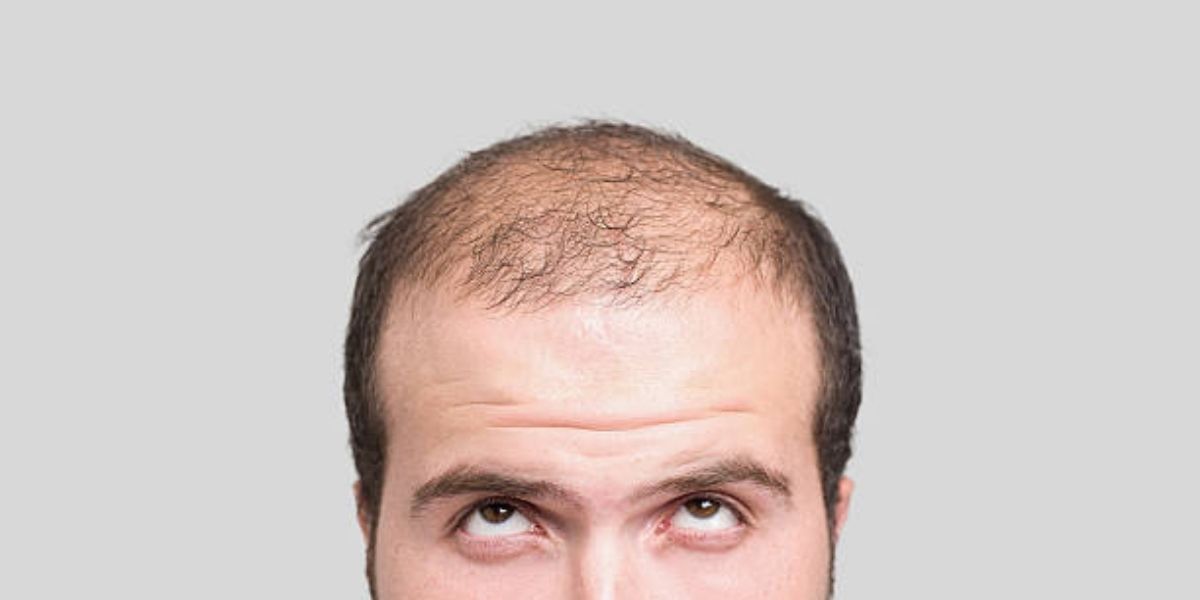
Hair loss is a condition that occurs when hair follicles weaken or die. This condition can occur for many reasons. These reasons include genetic factors, hormonal changes, signs of aging, stress, wrong eating habits, some health problems, medication and environmental factors. This hair loss condition, which varies from person to person, affects people negatively both aesthetically and psychologically, as well as affecting the quality of social life of the person. For this reason, the hair loss problem should be analyzed and treated quickly in order to improve the self-confidence of the person and to be happier in social life. Thus, the person can get rid of the problem of hair loss and regain newly grown healthy hair.
Hair loss can be of different types, occurring for a variety of reasons. Firstly, androgenetic alopecia or male pattern baldness and female pattern baldness, which is a genetic condition common in men and women, are the most common types of hair loss. To examine these types of hair loss closely;
Today, men suffer from hair loss due to various reasons such as stress. There are various types of this hair loss problem. These types are divided into five types. These are Androgenetic Alopecia (Male Pattern Baldness), Telogen Effluvium, Alopecia Areata, Scatricial Alopecia and Trichotillomania. To examine these types of male pattern hair loss;
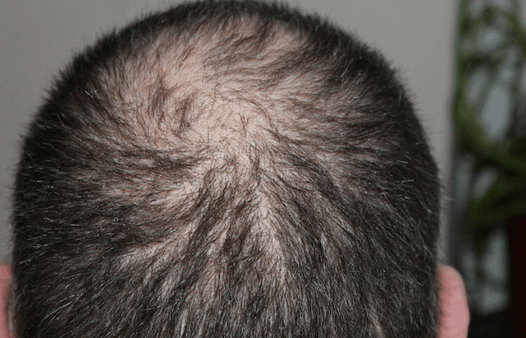
Androgenetic alopecia, also called male pattern baldness, is a common type of hair loss in men. The condition is associated with a genetic predisposition and is usually caused by an interaction between the hormone dihydrotestosterone (DHT) and the sensitivity of hair follicles. Androgenetic alopecia is characterized by a receding hairline and thinning on the top of the head. Over time, genetically sensitive hair follicles interact with DHT to thin and weaken the hair strands. This usually starts in adolescence and becomes more pronounced in later life.
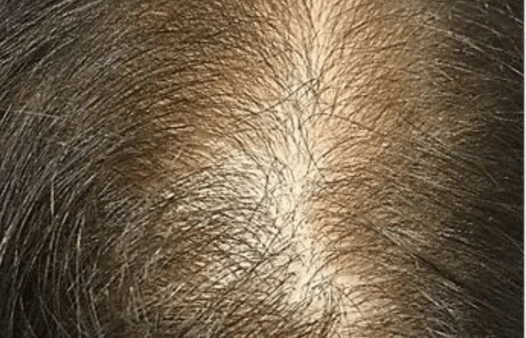
Telogen effluvium, a type of male hair loss, is a condition that represents a temporary and diffuse form of hair loss. This is a process in which a large proportion of hair follicles suddenly go into a resting phase, followed by increased hair loss. Telogen effluvium can often occur after stress, hormonal changes, intense dietary changes or severe trauma. These factors affect the normal hair cycle, pushing the hair follicles into a resting phase. In this type of hair loss, the hair usually starts to fall out after a few months, so the symptoms of this condition are usually noticed a few months after the event has occurred.
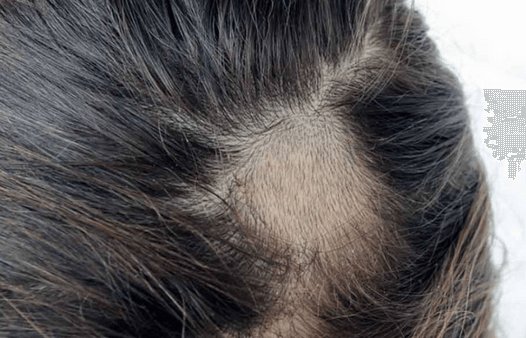
Alopecia areata, a common type of hair loss experienced by men, refers to an autoimmune condition in which the immune system targets hair follicles. In this case, the body perceives its own hair follicles as foreign and destroys them. Alopecia areata usually presents with a pattern of round or oval-shaped balding areas. These balding areas are usually neatly demarcated on the skin and are distinctly different from other areas of hair. The main cause of this hair loss is genetic predisposition, environmental factors and abnormalities in the immune system. The onset of hair loss is usually sudden and the hair loss usually occurs within a few months and may resolve spontaneously, but in some cases the hair loss may continue or recur.
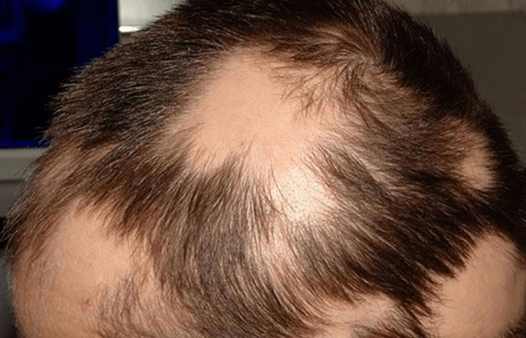
Scatricial alopecia, which takes its name from the scar tissues formed and is a common type of hair loss in men, is based on scar tissue instead of hair follicles on the scalp. It causes loss of hair follicles as a result of permanent tissue damage to the scalp. This condition is usually caused by severe skin damage such as injuries, burns, surgical interventions or certain skin diseases. This type of hair loss is usually irreversible and permanent. Scalp scar tissue, caused by injury or inflammatory conditions, can interfere with the growth and function of hair follicles. In this case, the hair loss is usually permanent and hair regrowth is not possible.
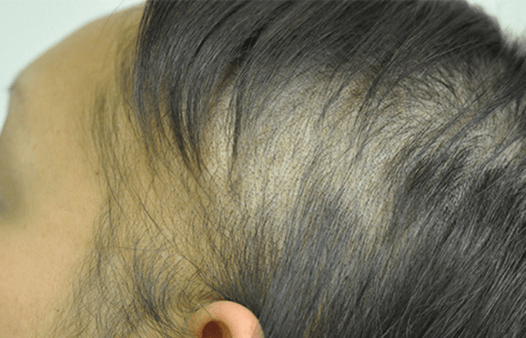
Trichotillomania, one of the leading types of male hair loss, is a condition characterized by unconscious or involuntary plucking or pulling of one's own hair. This condition is one of the obsessive-compulsive spectrum disorders, a type of impulse control disorder. This type of hair loss usually starts as a result of stress, anxiety, boredom or leisure time activity. The person tries to create a sense of relaxation by pulling, plucking or removing the hair. As a result, hair loss, baldness and scalp problems may occur.
Hair loss is a condition that many women, as well as men, suffer from. There are many types of this condition. These types are divided into 5 types. These are; Anagen Effluvium, Tinea Capitis, Lichen Planopilaris, Discoid Lupus Erythematosus and Central Centrifugal Cicatricial Alopecia. If we examine these types of female pattern hair loss;
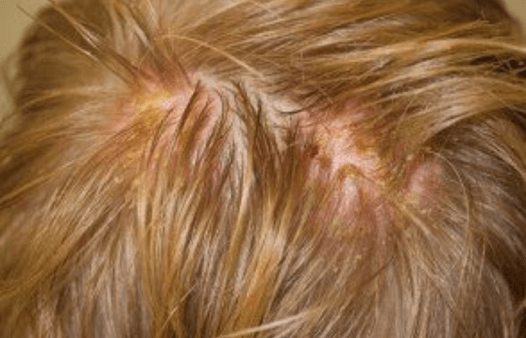
Anagen effluvium hair loss, which frequently occurs in women, refers to a condition that occurs during the anagen (growth) phase of hair loss. It usually occurs when the hair is subjected to excessive stress or aggressive medical treatments that can damage the rapidly dividing cells. In particular, cancer treatments such as chemotherapy or radiotherapy can cause anagen effluvium. These treatments affect hair growth by targeting rapidly dividing hair cells, resulting in anagen effluvium. In women, this can cause the hair shaft to weaken and break off, resulting in hair loss. This female pattern hair loss usually resolves after treatment with the resumption of hair growth, but the structure and quality of the hair can sometimes change. This is usually temporary and the hair will grow back when the hair follicles return to normal.
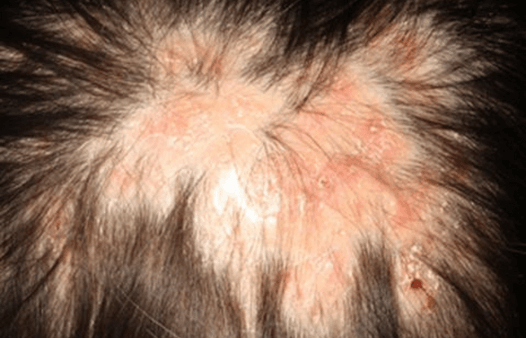
Tinea Capitis, also known as female pattern hair loss, is a type of infection affecting the skin of the head and hair follicles, usually caused by fungal species. These fungi usually belong to the genera Trichophyton and Microsporum. The infection is usually transmitted by person-to-person contact or through infected animals, and symptoms include itching, redness, scaling and hair loss. Infected people should pay attention to personal hygiene, stay away from infected animals and not share personal belongings.
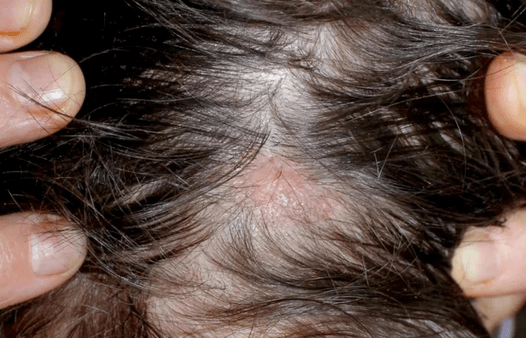
Lichen Planopilaris is an autoimmune condition that damages the hair follicles and scalp. The condition is characterized by the formation of inflamed, well-demarcated patches and scars, usually on the scalp. Lichen planopilaris can occur as a result of genetic predisposition, immune system abnormalities or the interaction of various environmental factors. This condition occurs when hair follicles are targeted by the immune system because they are perceived as a foreign substance. In this female pattern of hair loss, it is usually accompanied by symptoms such as itching, burning and hair loss.
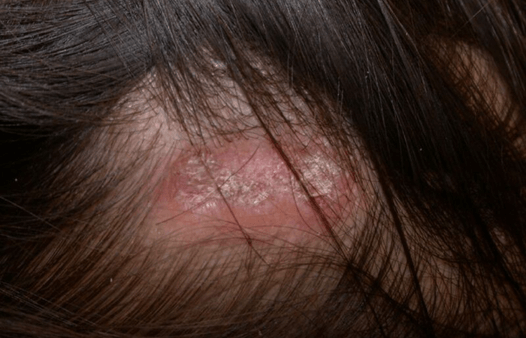
Discoid Lupus Erythematosus, one of the most common types of hair loss in women, is a chronic and inflammatory skin disease and is a subtype of systemic lupus erythematosus (SLE). DLE occurs most commonly on the scalp, especially on the face and ears. This type of hair loss is characterized by reddish, scaly lesions on the affected scalp. These lesions are usually disk-shaped and limited. The exact cause of DLE is not known, but factors such as genetic predisposition, immune system abnormalities and exposure to sunlight are thought to play a role. The disease usually occurs in people between the ages of 20 and 40 and is more common in women than in men.
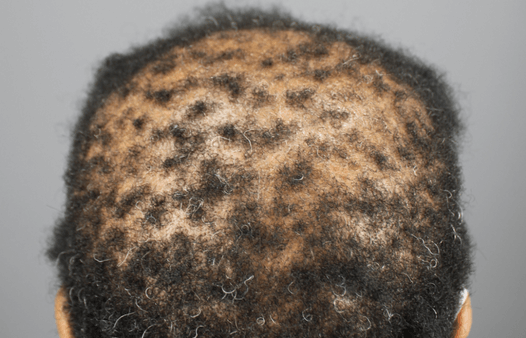
Central Centrifugal Cicatricial Alopecia, which we often hear as female pattern hair loss, is a hair disease that refers to a rare form of hair loss. Although it is generally more common in female individuals of Afro-Caribbean origin, it can also occur in other races. In this type of hair loss, it is a cicatricial (scarring) condition that causes progressive hair loss in the central areas of the scalp, especially on the crown of the head. It is characterized by inflammation of the hair follicles and the subsequent formation of cicatrix tissue. The exact cause is unclear, but genetic predisposition, hair care practices, and trauma-related factors are thought to play a role. The disease is usually progressive and can lead to cicatricial alopecia, which can make it difficult for hair to return.
Hair loss is a complex condition that can occur as a result of the interaction of many factors. Although genetic predisposition comes to the forefront among the factors affecting hair loss, the aging process, hormonal changes, stress, wrong eating habits, some health problems, medication use and environmental factors are among the factors affecting hair loss. To examine these factors closely;
Hereditary hair loss refers to a condition that occurs as a result of a genetic predisposition and is often referred to as androgenetic alopecia. This is a condition that causes hair loss due to familial factors in an individual's genetic background. This condition usually occurs as a result of the interaction of the hormone dihydrotestosterone (DHT) with hair follicles, weakening the follicles and causing thinning and loss of hair strands.
Age-related hair loss is a condition that we frequently encounter today. It is a natural consequence of the aging process and is characterized by an increase and thinning of the hair strands. This condition cannot be completely prevented, but it is possible to optimize hair health with a healthy lifestyle, balanced diet, regular exercise and hair care, as well as some treatment options.
Today, hair loss after cancer treatment, which is a condition frequently encountered by patients undergoing cancer treatment, is caused by the cancer treatments applied. Because treatment methods such as chemotherapy and radiation damage hair follicles and prevent the growth of healthy follicles in hair follicles. In addition, hair loss occurs in the hair follicles and prevents new hair from growing. At the end of the treatment, hair can grow back in a healthy way.
Childbirth, illness and other stress factors are among the important factors that can affect hair loss. Postpartum hair loss is a common condition that occurs due to hormonal changes. Increased hormone levels during pregnancy cause the hair to go into a resting phase and after childbirth, this hair begins to fall out. It is usually temporary and improves with the normalization of hormonal balance. In the case of stress, hormones cause the hair follicles to enter a resting phase and hair loss occurs. In this case, just like hair loss during pregnancy, it is temporary. When the intense stress situation disappears, the hair loss also disappears.
Today, unfortunately, incorrect hair care practices are an important factor that can negatively affect hair loss. It is important to use the right products and techniques to maintain hair health and prevent hair loss. However, in some cases, this can lead to the opposite situation. For example; Frequent and excessive hair washing, excessive use of hot water, frequent use of hair dryers or straighteners can weaken hair strands and cause breakage. In addition, tight hairstyles such as tight hair buns, braids or ponytails can also damage hair follicles and trigger hair loss. In addition, heavy hair products and excessive heat applications that can damage the scalp can also negatively affect hair health and trigger hair loss.
Hormonal imbalances in the body can also cause hair loss. The main reason for this can be problems in the organs of the endocrine system, thyroid disorders, conditions such as polycystic ovary syndrome (PCOS), menopause or side effects of certain medical treatments. Because hormones directly affect hair growth, elongation and hair loss. For this reason, if you are experiencing sudden hormonal imbalances, you should definitely see a doctor first and undergo hormone therapy. After the treatment, hair loss ends and healthy hair follicles begin to grow instead.
Scalp infections are one of the major health problems that can cause hair loss. These infections, usually caused by fungi or bacteria, can affect the hair follicles and lead to hair loss. Especially fungal infections called tinea capitis can affect the scalp and cause weakening and loss of hair strands. For this reason, if you experience symptoms such as itching, redness and flaking on your scalp, you should definitely see a doctor immediately. Otherwise, irreversible problems may occur with your hair follicles.
Sexually transmitted infections (STIs) are infections caused by microorganisms that are usually spread through sexual contact. Although the impact of STIs on hair loss is rare, in some cases these infections can affect hair health. In particular, syphilis, an STI, can present as a symptom that can cause hair loss. This is a condition that can improve after treatment of the sexually transmitted disease. There is no need to worry.
Since hair loss is usually a slow and progressive process, it may not be noticed at first. However, if it is recognized early, both the treatment method is easier and hair growth progresses faster. For this reason, we recommend that you consult a doctor before it is too late when the following situations occur. Here are the symptoms that will make it easier to recognize hair loss;
The first sign of hair loss, the gradual thinning of the top of the head, is a symptom of a genetic pattern of hair loss called androgenetic alopecia. This is a common type of hair loss, especially in men. In this condition, the gradual thinning and sparseness of the hair strands on the top of the hair is usually accompanied by a receding frontal hairline. In such cases, hair loss usually starts at the temples and progresses towards the crown.
Circular or irregular bald spots, another symptom of hair loss, are characteristic of alopecia areata, a specific type of hair loss. This condition occurs when the body's immune system targets its own hair follicles. This hair loss is usually characterized by the formation of round or irregularly shaped bald spots on the scalp. In these areas, the hair may fall out completely, but it usually appears as round or oval-shaped bald patches on the skin. Such conditions also often cause irregularly shaped lesions with clear borders on healthy skin. In this case, you should see a doctor immediately.
This symptom can often be a sign of conditions such as seborrheic dermatitis, fungal infections or psoriasis. Seborrheic dermatitis is a condition that usually occurs due to overactive sebaceous glands in the scalp. In this case, yellowish, white or gray scales can form on the scalp and often cause itching. In this fungal condition, scales form on the scalp and hair loss occurs after a certain period of time.
Hair follicle weakening, the last stage of hair loss symptoms, refers to a condition that lies at the root of hair loss. Hair follicles are the structural components found in hair follicles that enable hair strands to grow. This weakening can often be caused by genetic factors, hormonal changes, stress, malnutrition, environmental factors, hair care mistakes or some health problems. For this reason . Hormonal changes, especially hormonal imbalances or increased hormonal activity, can affect and weaken hair follicles.
There are certain measures that can be taken to prevent hair loss. These measures are not only simple but also prevent hair loss. These hair loss measures are as follows;
If you are experiencing hair loss and want to prevent it, you can contact Estetica's expert consultants and experience a healthy and successful hair transplant in Turkey.